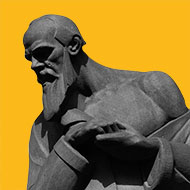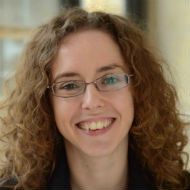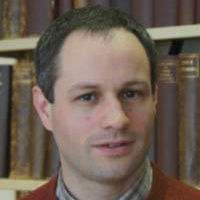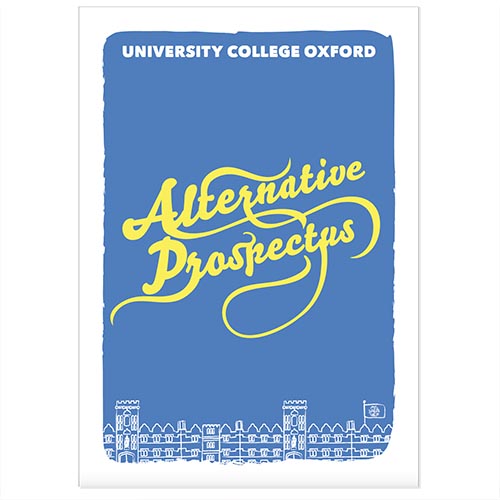 The Modern and Medieval Languages course at Oxford is primarily literature-based, allowing exploration of language, history and culture through the lens of the poetry, drama and prose written in the target language. Additionally, a growing number of options are available in cinema. Through your literary studies you will gain insights into gender issues, popular culture, art history, ethics, history, philosophy, politics, psychology and theology. You can choose to focus on a particular period – the medieval, the early modern or the modern era – as well as studying individual authors or themes in depth. The Oxford course also has an immersive approach to the linguistic aspects of foreign languages, allowing plenty of time for language teaching through regular classes, and more intensively through a year aboard which every student completes during their course. On graduating, students can expect to speak fluently in colloquial and more formal situations, write essays, and translate with accuracy and sensitivity to vocabulary, styles and registers.
The Modern and Medieval Languages course at Oxford is primarily literature-based, allowing exploration of language, history and culture through the lens of the poetry, drama and prose written in the target language. Additionally, a growing number of options are available in cinema. Through your literary studies you will gain insights into gender issues, popular culture, art history, ethics, history, philosophy, politics, psychology and theology. You can choose to focus on a particular period – the medieval, the early modern or the modern era – as well as studying individual authors or themes in depth. The Oxford course also has an immersive approach to the linguistic aspects of foreign languages, allowing plenty of time for language teaching through regular classes, and more intensively through a year aboard which every student completes during their course. On graduating, students can expect to speak fluently in colloquial and more formal situations, write essays, and translate with accuracy and sensitivity to vocabulary, styles and registers.
As the scientific study of language, Linguistics forms an interesting complement to a number of subjects, and Linguistics modules can be studied as part of degrees such as Classics, Asian and Middle Eastern Studies, and Modern Languages. Univ offers two joint degrees with Linguistics, Psychology, Philosophy and Linguistics, and Modern Languages and Linguistics. See below for more information about Linguistics at Univ.
Modern Languages at Univ can be studied as a pair of languages (e.g. Russian and French), as a single, “sole” language or in combination with the joint schools of Classics, English, History, Philosophy or Linguistics. Modern Languages at Univ specialises in Russian and Czech (correct for 2023 entry.) We are the only Oxford college to have both a Russian fellow, Professor Polly Jones, and a Czech fellow, Dr Rajendra Chitnis, making us a key centre for undergraduate and graduate Slavonic studies in the university. For all courses involving Modern Languages (except History and Modern Languages) the College requires that Russian or Czech be one of the subjects studied, either within joint schools (e.g. Russian and History, Philosophy and Czech), or within the Modern Languages School itself (e.g. Russian and French, Czech and German). Univ’s Modern Language undergraduates are able to study Russian or Czech with some prior knowledge of the language or alternatively they may begin from scratch. (Russian from scratch can only be taken with another language that you are already studying at A-level, not as part of a joint school). This specialisation creates a community of students studying similar languages, who are supported by Russian and Czech tutors. Full support is of course given to students studying the many other languages that the College offers.
The Modern Languages course offers many different language options. In order to support our students in whichever options they choose, a number of academics with affiliations elsewhere in the Collegiate University are lecturers at Univ and they teach and advise our students on an ongoing basis. Currently, these include:
- French: Chimene Bateman
- French: Michaël Abecassis
- German: Alex Lloyd
- Italian: Marco Dorigatti
- Polish: Jan Fellerer
- Spanish: Roy Norton
There is a wealth of information about the Modern Languages course structure, possible option choices, and admissions criteria on the University of Oxford’s main website, available at ox.ac.uk
Any undergraduate degree at Oxford provides you with a wide variety of transferable skills and therefore Univ’s students progress to a diverse range of careers. For some, their undergraduate degree leads to academic research, industrial research or teaching. For many, their future career, for instance in business, government or the charitable sector, is defined less by the subject they studied and more by the skills they acquired. Oxford’s Careers Service provides destination statistics for graduates.
Resources
If you are considering applying for Modern Languages, a number of resources you might find useful to explore beyond the school curriculum can be found on Univ’s Staircase12 pages, including the Reading Bank and Resource Hub.
In this video Professor Polly Jones describes some of the exciting opportunities offered by the study of Russian literary texts. She goes on to illustrate this with reference to a passage from Aleksandr Solzhenitsyn’s short 1962 novel, One Day in the Life of Ivan Denisovich, which caused a sensation in its day by broaching the taboo topic of the Stalin-era labour camps (Gulag). Watch on YouTube.
In this video Dr Rajendra Chitnis talks about why you might study Czech and Slovak at Oxford, what the course involves and the opportunities it opens up. Watch on YouTube.






